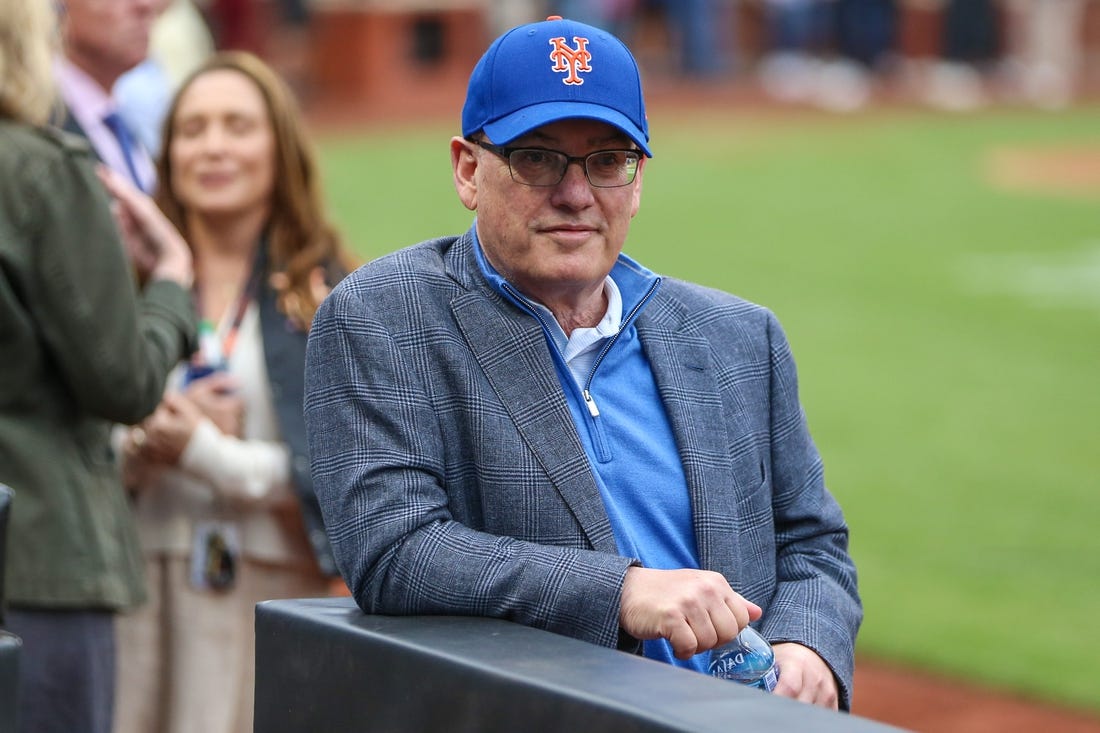Mets hit with record $101M luxury tax
League: MLB 
With the league's highest ever tax payroll, the New York Mets top the list of an unprecedented eight Major League Baseball teams that owe a luxury tax for the 2023 season, according to multiple reports.
Owner Steve Cohen's Mets owe a record luxury tax of almost $101 million, according to numbers finalized by MLB this week and obtained by the Associated Press. The Mets' $374.7 million tax payroll tops the previous high of $291.1 million by the Los Angeles Dodgers in 2015.
The money spent didn't help the Mets, who finished at 75-87 and in fourth place in the National League East.
It would have been even worse for the Mets if not for their selling bonanza over the summer, trading Max Scherzer, Justin Verlander, David Robertson and Mark Canha. Those moves reportedly saved the team $18 million and prevented them from jumping past the next tax threshold and owing an even higher luxury tax.
Ironically, the fourth threshold of $293 million, dubbed the Cohen Tax, was added into the 2022 labor contract as an attempt to slow the Mets owner's spending. The Mets and the New York Yankees were the only teams to exceed that threshold in 2023.
The full list of MLB teams owing luxury tax payments, due by Jan. 21:
New York Mets: $100,781,932
San Diego Padres: $39,693,954
New York Yankees: $32,399,366
Los Angeles Dodgers: $19,423,297
Philadelphia Phillies: $ 6,977,345
Toronto Blue Jays: $5,535,492
Atlanta Braves: $3,159,536
Texas Rangers: $1,827,142
This is the first time paying a luxury tax for the Rangers, Braves and Blue Jays.
This is the second straight year paying a luxury tax for the Phillies, Mets and Yankees, which requires payments of 30 percent on the first $20 million over, 42 percent on the next $20 million, 75 percent on the third $20 million and 90 percent on any amount over $293 million.
The Padres and the Dodgers owe luxury tax for the third straight year, which kicks in a tax rate of 50 percent on the first $20 million above the $233 million threshold, 62 percent on the next $20 million and 95 percent on the amount from $273 million to $293 million.
The tax money is used to fund player benefits (the first $3.5 million) and players' Individual Retirement Accounts (50 percent of the remainder). The other 50 percent of the remainder goes to a supplemental commissioner's discretionary fund intended to be given to certain teams receiving revenue-sharing money.
--Field Level Media
Owner Steve Cohen's Mets owe a record luxury tax of almost $101 million, according to numbers finalized by MLB this week and obtained by the Associated Press. The Mets' $374.7 million tax payroll tops the previous high of $291.1 million by the Los Angeles Dodgers in 2015.
The money spent didn't help the Mets, who finished at 75-87 and in fourth place in the National League East.
It would have been even worse for the Mets if not for their selling bonanza over the summer, trading Max Scherzer, Justin Verlander, David Robertson and Mark Canha. Those moves reportedly saved the team $18 million and prevented them from jumping past the next tax threshold and owing an even higher luxury tax.
Ironically, the fourth threshold of $293 million, dubbed the Cohen Tax, was added into the 2022 labor contract as an attempt to slow the Mets owner's spending. The Mets and the New York Yankees were the only teams to exceed that threshold in 2023.
The full list of MLB teams owing luxury tax payments, due by Jan. 21:
New York Mets: $100,781,932
San Diego Padres: $39,693,954
New York Yankees: $32,399,366
Los Angeles Dodgers: $19,423,297
Philadelphia Phillies: $ 6,977,345
Toronto Blue Jays: $5,535,492
Atlanta Braves: $3,159,536
Texas Rangers: $1,827,142
This is the first time paying a luxury tax for the Rangers, Braves and Blue Jays.
This is the second straight year paying a luxury tax for the Phillies, Mets and Yankees, which requires payments of 30 percent on the first $20 million over, 42 percent on the next $20 million, 75 percent on the third $20 million and 90 percent on any amount over $293 million.
The Padres and the Dodgers owe luxury tax for the third straight year, which kicks in a tax rate of 50 percent on the first $20 million above the $233 million threshold, 62 percent on the next $20 million and 95 percent on the amount from $273 million to $293 million.
The tax money is used to fund player benefits (the first $3.5 million) and players' Individual Retirement Accounts (50 percent of the remainder). The other 50 percent of the remainder goes to a supplemental commissioner's discretionary fund intended to be given to certain teams receiving revenue-sharing money.
--Field Level Media










